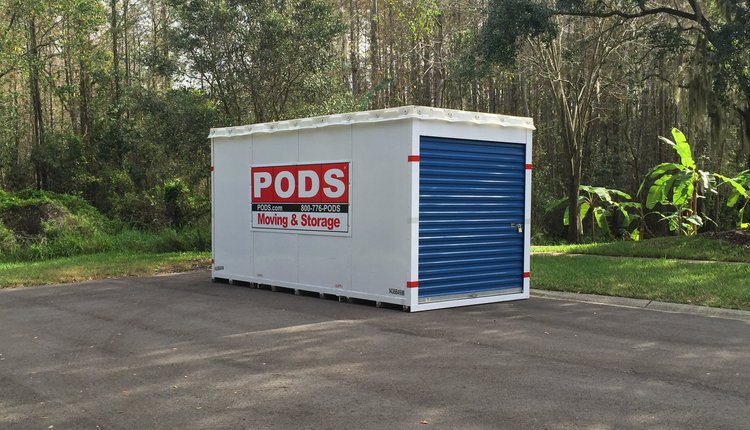Much has been written in the media lately about Amazon extending the benefits of its logistics network to transactions other than those originating at Amazon’s fulfillment centers (personally, I think much of what is written is simply wishful speculation). Some consider this extension to be a direct assault on the core business of FedEx and UPS, and there has been much teeth-grinding that this might somehow be an existential threat to the well-established, integrated Big Two. So much is made of this that recently, a Wall Street Journal article on the topic caused the stocks of both companies to drop dramatically. (FedEx closed at $274 on January 19; it closed two months later, for example, at $234. UPS closed January 19 at $133; it closed a couple months later at $102.) Granted, this swing is not entirely attributed to the prognostications that Amazon plans to threaten FedEx and UPS at its core business. To be honest, many (including me) have long advocated for alternatives to the duopoly of UPS and Fed and an increase in lower cost choices for shippers.
The new service will apparently be called Shipping with Amazon (SWA). Amazon will supposedly be making pick-ups (there is no clarity if these are daily stops or on-demand, which creates another issue of driver scheduling), and the packages picked up will be injected into the Amazon package stream at its centers and then move to destination and delivery within its established network. The initial target is suppliers/retailers/vendors currently using the Amazon site to peddle their goods.
Amazon is a huge company, but its core business is not transportation. Doing what it does on a global basis does require it to purchase large quantities of transportation services. In 2017, Amazon’s shipping expenses amounted to $21.7 billion. This is no small number.
Amazon has cobbled together an airline network that it has developed with ABX, Atlas, and an air hub in Cincinnati that’s under construction. We know it has built out an elaborate network of contractors who make deliveries for the company. From my perspective, it’s a lot like the DHL model here in the USA and what Airborne Express was in 2003 when DHL purchased it. Amazon certainly does have critical mass from orders coming through, and that volume has shown explosive growth over the last 10 years. It is big enough now to be all it wants to be.
What Does the Future Hold?
But let’s think about what Amazon is moving, how it evolved, and, similarly, where UPS and FedEx come from.
The other day, I disposed of at least 20 Amazon boxes in my daughter’s basement and put them out for recycle. What does my daughter buy from Amazon that generated so many orders and corrugated? She gets her paper towels, her disposable diapers for my grandchildren, wipes, toilet paper, laundry detergent, and, in some cases, a towel rack (which I was asked to assemble).
Let’s compare that to the experience I (and many of my peers from FedEx and UPS) had.
What’s at the core of who they are and what they do? Both firms have extensive sales teams that call on key, strategic, national and global accounts — companies like IBM and HP, Medtronic & St. Jude Medical, Zimmer, Johnson and Johnson, Merck, Technicolor, Labcorp and Quest, Paychex and ADP. Eighty-five percent of the Forbes and Fortune 500 were using Airborne to some extent when it was sold. I could go on for an hour listing the companies that create the coal that makes the steam that drives the train at FedEx and UPS. Ironically, Fed and UPS have sales reps assigned to Amazon.
Can you see the difference here? IBM sends critical parts to keep mainframe computers running, often tens of thousands of parts orders a day. There are technicians awaiting the parts at the delivery end, and every minute is money for the owner of the computer system that is down. Quest and Labcorp take your medical specimens when you are ill and transport them to testing labs. Each second the specimen is in transport, the more the sample degrades. Your diagnosis could depend on a timely delivery.
Companies like Medtronic rely on early-morning, next-day delivery of pacemakers for patients in extremis and scheduled for implantation surgery. Similarly, Zimmer relies on the same for your knee replacement. You just can’t be late when a surgeon is in an operating room ready to cut a patient. Companies like ADP send you paycheck. Some people live paycheck to paycheck, and some unions stop working until the workers get paid. Theatrical firms send movies to be released in theatres, and a delay can cost a theatre thousand in lost sales.
I think you get my point.
There is a profound difference in what Amazon is transporting today and what Fedex and UPS transport, day in and day out. My daughter buys a months’ worth of toilet paper from Amazon and if it takes a day or five days, it’s not the end of the world. If I am on an operating table awaiting insertion of my pacemaker, I don’t what the manufacturer selecting Amazon for the transportation. I’m ok with paying a little more, even if the surgeon is a Prime member.
I am a big fan of Amazon. I love what it has accomplished. I want it to continue to grow. Its success story is the epitome of American free enterprise and ingenuity. I want them to be successful and profitable. But I think the same of both UPS and FedEx. There is room for all to prosper. I firmly believe that as Amazon grows, there will be even more business in it for UPS. (Amazon uses a lot of UPS; FedEx used to have a lot more, but Fedex took a hit when Amazon decided to do its own USPS drops).
At the end of the day, if you compare the UPS and FedEx balance sheet details and statistical details vs. what Amazon is building and buying, it is presently two different worlds. Granted, Amazon has demonstrated that if it wants to be in a particular field, it can muscle its way in, but I think it is a long way from threatening the livelihood of employees at FedEx and UPS.
Methinks the people that shorted the stocks of the Big Two may perhaps have overreacted. Of course, this is just one man’s opinion. I could be wrong, and only time will tell.
Jerry Hempstead, a.k.a Mr. Parcel due to his extensive experience in the small-package industry, can be reached at gmhempstead@aol.com.

















